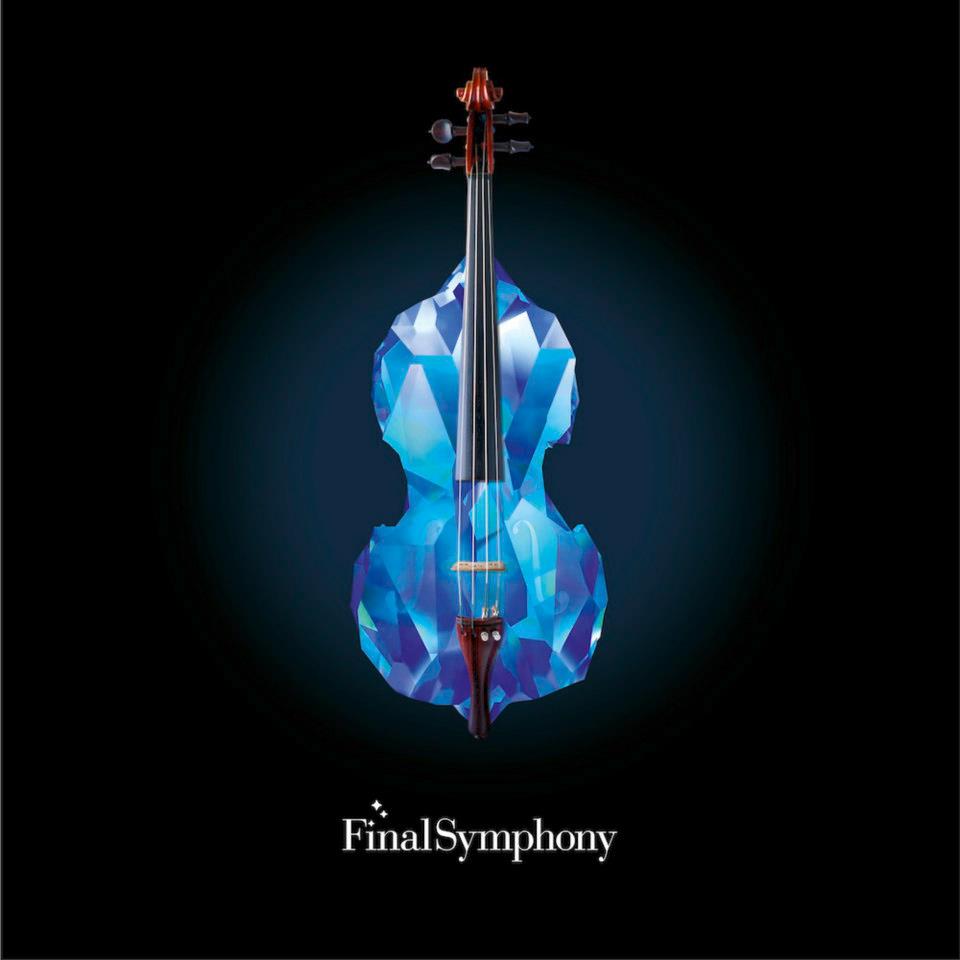
“Final Symphony” – a celebration of the music from Final Fantasy VI, VII and X attended by Nobuo Uematsu and Masashi Hamauzu – played in Wuppertal, Germany on May 11th. The music is arranged to tell the story from each game in a continuous arc, and the unique presentation allows for some never-before orchestrated pieces to reach our ears. Staff member Tetsujin was lucky enough to attend, and gives us his account below.
Video game music enthusiasts and fans of Final Fantasy music will most likely be familiar with concerts such as Symphonic Fantasies or Symphonic Odysseys.
Organized by Thomas Böcker, these concerts have been performing video game music in Germany for a couple of years now. Symphonic Fantasies was even exported to Japan and performed in Tokyo.
What separates Böcker’s concerts from other events such as Distant Worlds are the arrangements. Distant Worlds tries to emulate the feel of the originals as much as possible, taking the songs from the soundtracks and just orchestrating them with little rearranging. The feel is that of a pop concert, with the light show and the huge screen in the back; often including vocal performances of theme songs as well.
Böcker’s concerts are closer to an actual classical performance. There’s no screen, only the musicians. The music is often played in elaborate symphonies consisting of multiple movements or piano concerts. The arrangers get to be more creative, take more risks. Not all the arrangements are guaranteed to be liked by everyone. One-Winged Angel for example is always demanded by people – but never do Böcker’s concerts play it in its pure form, sometimes only just getting to the opening part… only to fake out and play something different!
Both concert forms are very different experiences, allowing Distant Worlds and the “Symphonic”-series to coexist, each with their own merits and unique feel.
Now organizer Böcker and his longtime collaborators; arrangers Jonne Valtonen and Roger Wanamo have done it again: “Final Symphony”.
Whereas previous concerts such as Fantasies and Odysseys included Final Fantasy music, they never focused on it with the former including multiple Square-Enix franchises and the latter being a tribute to Nobuo Uematsu, including a variety of game music he composed outside his more well known Final Fantasy works.
Final Symphony on the other hand is their first FF-only concert with three specific titles chosen for the music selection: VI, VII and X.
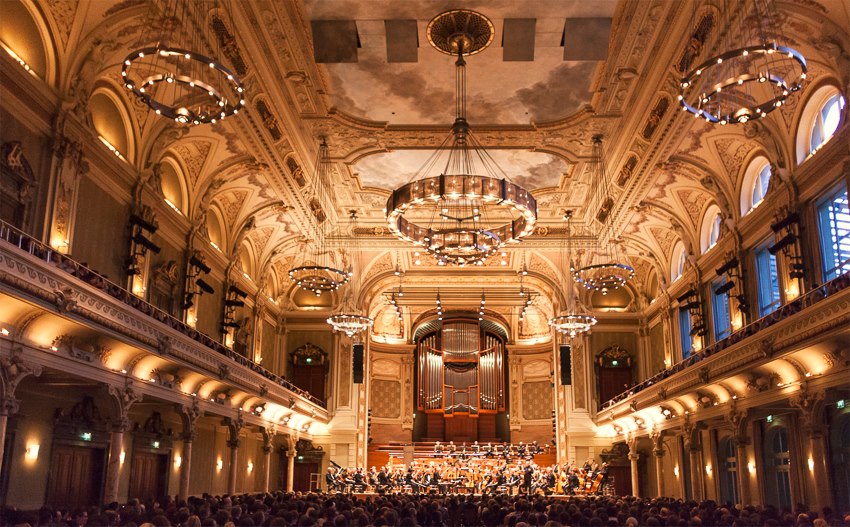 Unlike the previous concerts which were performed by the WDR Radio Orchestra in Cologne, Final Symphony took place at the Historische Stadthalle (Historical city hall) in Wuppertal, performed by the Wuppertal Symphony Orchestra with another upcoming show on May 30 in London, performed at the Barbican Centre by the London Symphony Orchestra.
Unlike the previous concerts which were performed by the WDR Radio Orchestra in Cologne, Final Symphony took place at the Historische Stadthalle (Historical city hall) in Wuppertal, performed by the Wuppertal Symphony Orchestra with another upcoming show on May 30 in London, performed at the Barbican Centre by the London Symphony Orchestra.
Two shows were performed on May 11, one at 14:30 and another at 19:30; with autograph sessions preceding both (free for anyone with a ticket).
FF composers Nobuo Uematsu and Masashi Hamauzu both attended.
The venue itself added a lot to the atmosphere with its beautiful 19th century style of elaborate decorations and ceiling paintings.
Now to the actual program:
As always, the concert started with a fanfare. Jonne Valtonen’s “Circle Within a Circle Within a Circle” set the tone for what was to come.
The first medley was the Final Fantasy VI Symphonic Poem – “Born With the Gift of Magic”, telling VI’s story from Terra’s point of view using music only, arranged by Roger Wanamo.
Beginning with the opera scene’s Overture, the piece quickly changes to a somewhat melancholic version of Terra’s Theme mixed with Troops March On, which could be seen as FFVI’s equivalent of the “Imperial March”. It tells the story of Terra’s enslavement by the Empire and soon changes from the melancholic into the loud and dramatic, now with Terra’s theme in full.
This is followed by Kefka’s Theme, introducing the Emperor’s right-hand man and actual villain of the story. As it goes on the pace gets more frantic as the evil jester descends further into madness.
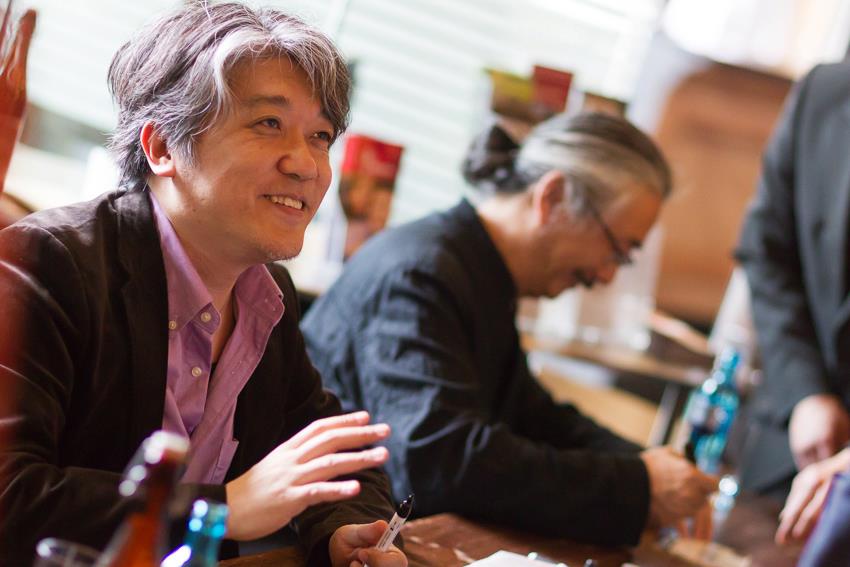 Up next was Esper World. The sort of uneasy tone and sense of mystery that this song conveyed in the original was only enhanced by the orchestra’s performance. In the middle of this segment, there is a quiet rendition of Terra’s Theme played on a Celesta (I might be wrong here since I’m admittedly not that knowledgeable when it comes to instruments), which is basically like a piano that sounds like tiny bells. I felt reminded of John Williams’ music for the Harry Potter movies (Hedwig’s Theme starts with a Celesta as well), specifically the scene where Harry finds out he’s a wizard – all too fitting as no doubt this was supposed to symbolize Terra finding out about her heritage as half-Esper.
Up next was Esper World. The sort of uneasy tone and sense of mystery that this song conveyed in the original was only enhanced by the orchestra’s performance. In the middle of this segment, there is a quiet rendition of Terra’s Theme played on a Celesta (I might be wrong here since I’m admittedly not that knowledgeable when it comes to instruments), which is basically like a piano that sounds like tiny bells. I felt reminded of John Williams’ music for the Harry Potter movies (Hedwig’s Theme starts with a Celesta as well), specifically the scene where Harry finds out he’s a wizard – all too fitting as no doubt this was supposed to symbolize Terra finding out about her heritage as half-Esper.
Eventually the music goes into full action mode as it fades into Metamorphosis and the Battle Theme mixed with Protect the Espers. Kefka’s Theme makes a short return as well as the battle between good and evil reaches its climax – and suddenly stops. The battle is over. As the music slowly returns and builds up into what is the most triumphant version of Terra’s Theme so far, it is clear who emerged victorious.
Once more the notes of the Opera Overture sound, ending the FFVI medley the way it started.
Next up was the three-part Final Fantasy X Piano Concerto, arranged by none other than Masashi Hamauzu himself. Once again, the piano would be played by Benyamin Nuss who has become somewhat of a staple of these concerts and recently recorded for the Kingdom Hearts HD 1.5 ReMix.
The first part consisted of an elaborate arrangement of the Zanarkand and Besaid themes. While it was still rather pleasant to listen to, I felt like it didn’t quite have the same emotional impact as the Zanarkand theme sometimes got lost in the overly complex piano arrangements.
The second part arranged both the Hymn of the Fayth as well Thunder Plains. Without a choir to sing the lyrics of the hymn, this arrangement was done a bit closer to the version you hear in FFX’s ending theme although overall more subdued. The Thunder Plains arrangement felt close to how it is in the game with piano played at a faster pace though.
Anyone expecting a bit more bombast was most likely a bit upset up until that point, although it returned with the third part, beginning with Assault and ending with the Final Battle theme.
Overall I expected a little more from this. I felt it was a bit disappointing in the selection of songs and the way they were arranged, especially seeing as how I generally enjoy Hamauzu’s compositions and arrangements, his version of Donkey Kong Country’s Aquatic Ambiance being one of my favorites from Symphonic Legends.
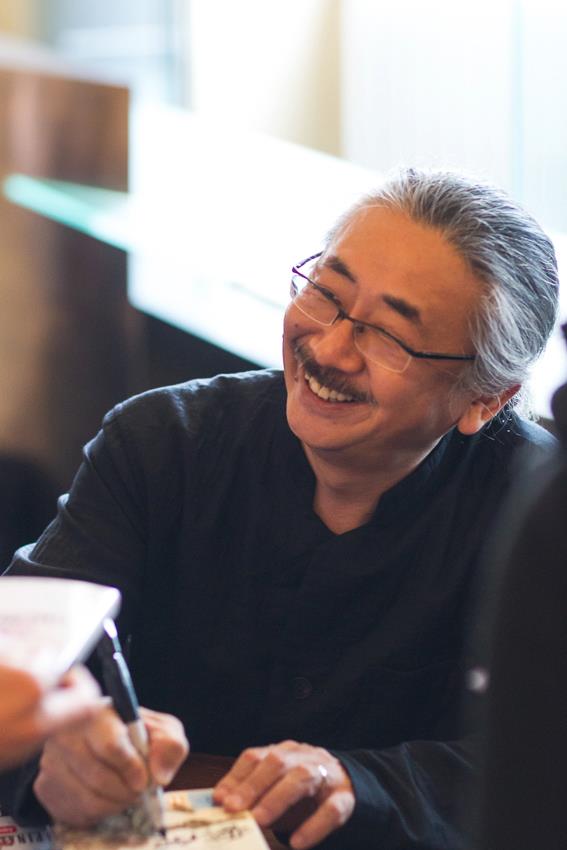 After a break, it was time for what was undoubtedly the evening’s highlight: The Final Fantasy VII Symphony in Three Movements arranged by Valtonen, with a length of 40(!) minutes, surpassing even the 36-minute Symphonic Poem for the Legend of Zelda from Legends.
After a break, it was time for what was undoubtedly the evening’s highlight: The Final Fantasy VII Symphony in Three Movements arranged by Valtonen, with a length of 40(!) minutes, surpassing even the 36-minute Symphonic Poem for the Legend of Zelda from Legends.
Similar to the FFVI symphony, this one tried to recap events of the game with music. The first part focused on the infamous Nibelheim Incident.
As the first notes of FFVII’s Opening melody play, this focus already becomes apparent as the strings throw in a hint of Those Chosen by the Planet, before the orchestra plays the opening fanfare at full strength.
This leads directly into a portion of the FFVII Main Theme which usually starts at two thirds in. There’s a sense of foreboding and soon the music turns outright menacing as everybody’s favorite boss theme, One-Winged Angel, begins to play. The difference being there’s no choir this time and Sephiroth’s theme is instead used as more of a leitmotif throughout the entire first movement.
Sephiroth finding out about his origins as having been born out of the Jenova Project is signified here by the intro of OWA transitioning right into J-E-N-O-V-A. (It should also be positively noted that the audience here did not start to cheer and applaud at the mere sound of OWA’s first notes as they have done at Symphonic Fantasies and Odysseys).
At the end, OWA returns with full force. The choir isn’t missed too much as the orchestra makes up for it by playing even louder, with more aggression and ferocity and even now the Jenova theme pops up every now and then, ending the first movement with a bang.
The second movement can be seen as a musical interpretation of FFVII’s love triangle. Has the love triangle so far only brought forth endless and pointless debates on internet forums, shipping wars and pink swastikas; here something good finally came of it.
Words Drowned by Fireworks has been beautifully orchestrated and sets the romantic mood for the second half of the movement. The first half ends with the strings and percussion cleverly simulating the sound of fireworks. The second half sees the return of Aerith’s Theme as well as Tifa’s Theme being orchestrated for the first time. Representing Cloud, the FFVII Main Theme comes back as well, played in a more romantic fashion.
All these themes have been brilliantly interwoven and form what I think might just be one of the most beautiful arrangements of video game music so far.
However, the triangle is resolved the same way it was in the game. Suddenly the thundering OWA intro returns and Cloud’s and Aerith’s theme become more distorted, ending this movement on a tragic note.
That brings us to the third movement, which included quite a few premieres, starting with an arrangement of Countdown (which itself contains a version of Cid’s Theme which would also return proper) as well as Cosmo Canyon and The Great Warrior which are songs that I have long been waiting for to get the orchestral treatment and I wasn’t disappointed.
Better yet, after Birth of God was performed for the first time at Symphonic Odysseys only one FFVII battle theme remained unorchestrated – Jenova Absolute. This gap has now been closed. What follows is a fairly straightforward arrangement of The Planet’s Crisis’ last part, evoking images of the Lifestream breaking out of the earth to destroy Meteor, ending the symphony on a high note.
I don’t have enough words to fully express my praise for this last symphony. I don’t think this can be topped anytime soon. It was an absolutely amazing experience and I’m glad I had the chance to sit in the audience for this. The standing ovations for the orchestra, the arrangers and of course the composers were well deserved.
Oh, but wait. None of these concerts is complete without a surprise encore, right?
After the grandiose medleys the first encore was a bit more somber, with another FFVII song that was long overdue for orchestration: Anxious Heart.
The second encore began as FFVI’s Battle to the Death – but they pulled a familiar troll move by replacing it with a far more lighthearted melody: FFVI’s Moogle Theme.
I enjoyed both performances although it could be argued whether these two were appropriate as the evening’s finale.
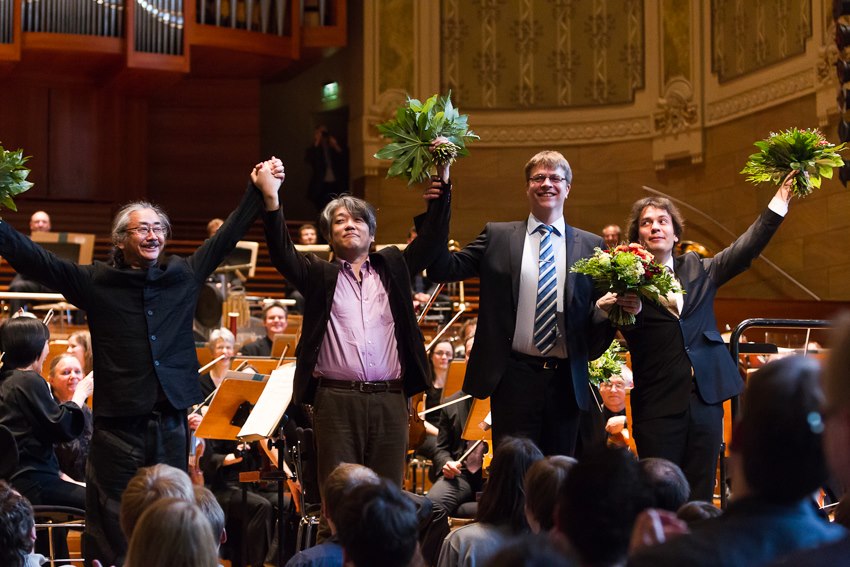
Nevertheless, it was an absolutely fantastic concert. The people involved once again proved to possess a high amount of skill and professionalism as well as intimate knowledge and understanding of the source material. I hope Final Symphony’s arrangements will someday be recorded and released. Unfortunately no such thing is currently planned and it would be a shame if this was the only instance to properly listen to them (nevermind low quality bootleg recordings).
I cannot wait for whatever’s in store for us next from Böcker and his usual suspects!

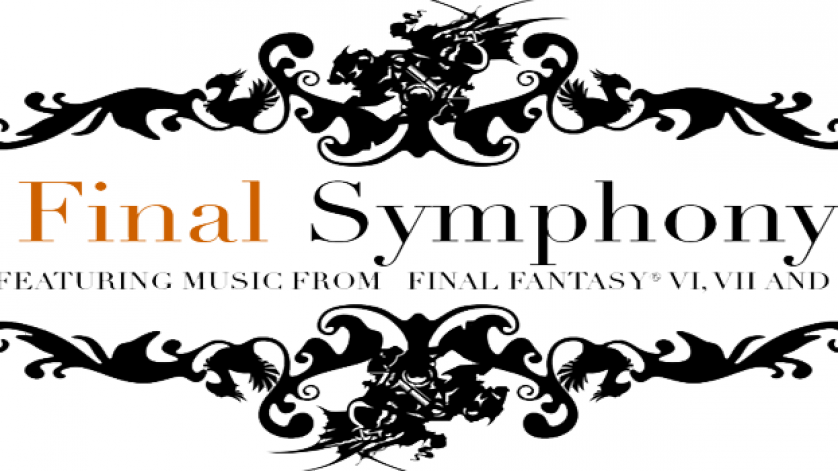


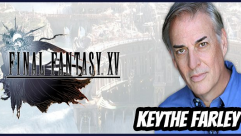

No comments yet
Log in or Register
Absolutely amazing. I love that the composers understand the stories and tell them with the music. I’d love those ClassicFM snobs to sit through this and tell me it has no merit.
Great review, Tetsujin! Having listened to a recording of it, I have to say that I agree with much of what you said, especially the FFX Piano Concerto. It was lacking the oomph that the other two orchestral arrangements had. Wish I’d been able to witness this first hand, though, and I’m really hoping they do a formal recording sometime! It’s definitely something I would buy.
Good Gawd, I’d love some videos!
http://www.youtube.com/watch?annotation_id=annotation_805792&feature=iv&src_vid=HTXeyY_cRx8&v=6dGPUn6Eix4